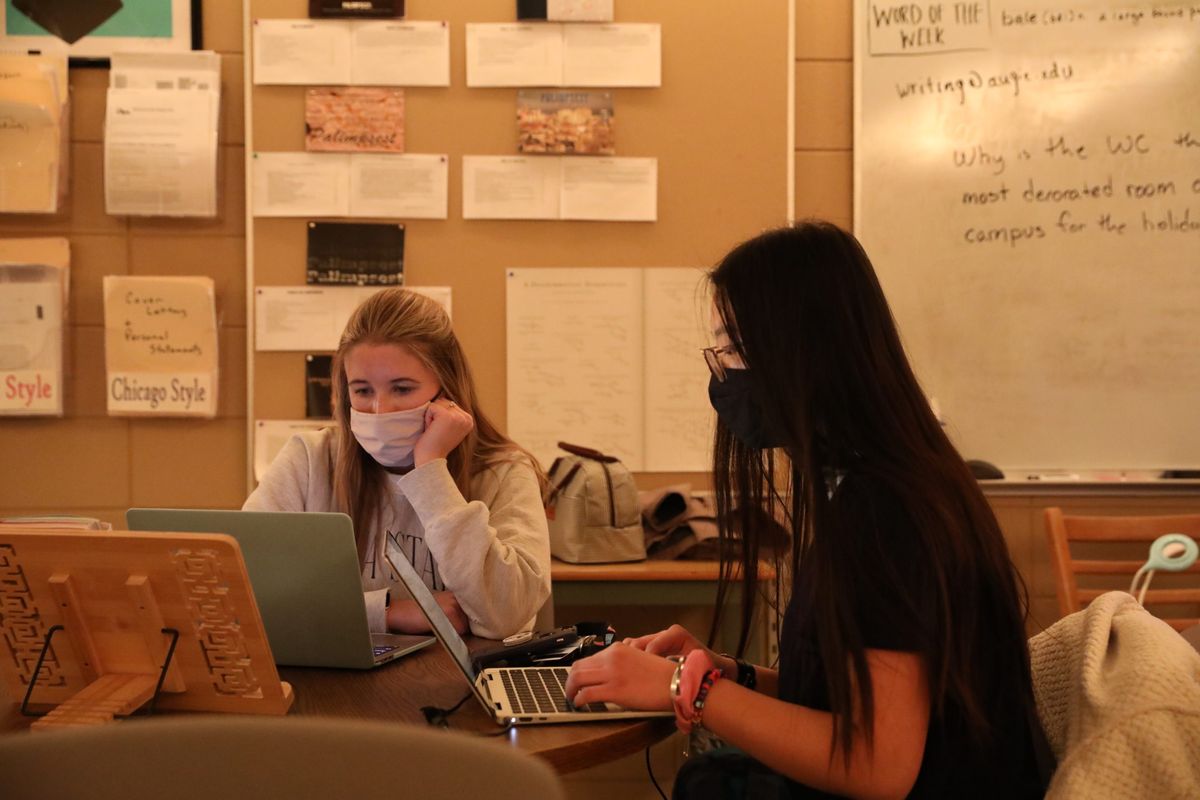ASA buys one year of Grammarly for Writing Center

The Writing Center will have access to a new software to help students by this January.
The Augustana Student Association voted last month to fund Grammarly accounts for use by Writing Center tutors. The resolution, introduced by senators Slater Dixon and Britney Thong Sing Yi, allocates $151 to the Writing Center for a one-year subscription.
Dixon said the resolution was inspired by larger schools who fund Grammarly accounts for all of their students. Though accounts for all students wasn’t realistic, Dixon said he thought that use of the accounts in the Writing Center would both bring Grammarly access to students and push more students to use the Writing Center’s services.
Dixon and Thong Sing Yi went to Writing Center director Daniel Gerling with the idea. Gerling said his gut reaction was to say no.
“Initially I thought ‘No, no thanks. We just don’t want this,’” Gerling said. “But the more I thought about it, and especially after asking the tutors […] I thought we should really give this a chance.”
Gerling said that replacing the “human aspect” of tutoring was part of his initial hesitation to Grammarly. He said there are some rules in English, like split infinitives, that have exceptions. Grammarly may tell a student to replace it, but Gerling said Writing Center tutors can explain the reason behind the rules and when they’re okay to break.
Senior Ellie Holmes, a tutor at the Writing Center, said that she agrees with Gerling.
“One of the most special things about having peer tutors is that face-to-face interaction, not a computer or a machine doing the work for you,” said Holmes.
After hearing from tutors who had used Grammarly in the past, Gerling said his opinion changed. He said Grammarly will allow tutors to focus on “higher order” issues like argumentation and organization, allowing Grammarly to catch some of the “lower order” issues like grammar and spelling.
Holmes said Grammarly will be especially helpful on long papers, catching smaller errors while she and her peers focus on bigger ideas like structure and organization.
“Having a person edit for style and organization of your essay is a really valuable tool,” Holmes said.
Holmes said she thinks Grammarly will be useful but would like to see guidelines for students on how to use it. This ensures that students will not lose the human interaction in the Writing Center and encourages them to problem solve rather than relying solely on the software.
Gerling said the Writing Center is hoping to experiment with Grammarly over interim, eventually coming up with a guide for tutors on how they can best use Grammarly with students.
The resolution funds Grammarly accounts for one year. After this trial period, ASA’s curriculum committee and the Writing Center will make a joint decision on whether to continue use.
“It’s one more thing the Writing Center can do on top of the already good services that the tutors provide,” Dixon said.



